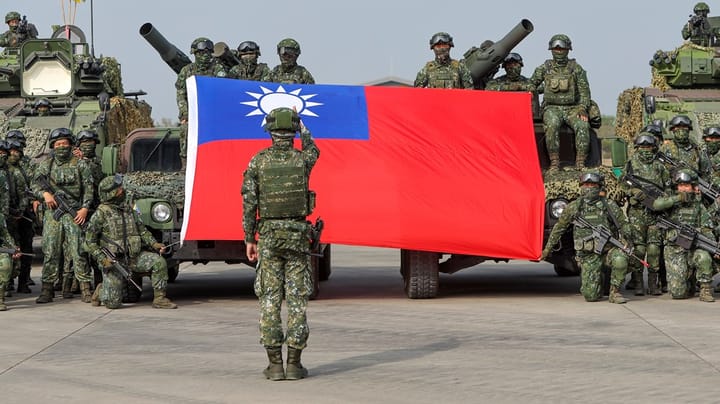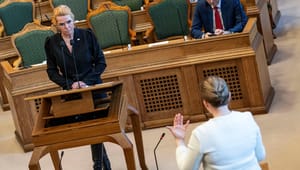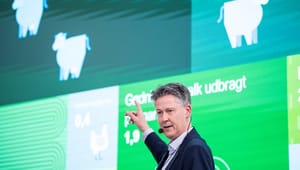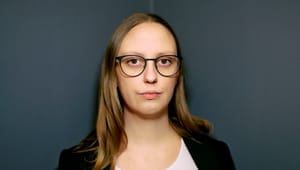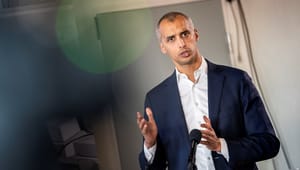Den kringlede vej til succes i Brasilien
DEBAT: Skal dansk velfærdsteknologi finde vej til Brasilien, må danske virksomheder forstå den lokale kontekst først. At få succes i Brasilien tager tid og kræver hårdt arbejde, hvis man vil uden om de mange strukturelle forhindringer. Det skriver Gustavo Ferraz de Luna, direktør i Luna Consulting.

Af Gustavo Ferraz de Luna
Adm. direktør i Luna Consulting og ekstern konsulent i Welfare Tech
In my previous debate, I have pointed out that there are some similar challenges, which the Brazilian and Danish healthcare systems are facing - both in terms of the increasing number of the elderly and the citizens suffering from chronic diseases.
These issues combined with a need of improving patient flow and process in hospitals, is expected by hospital managers and public policy makers to lead to the reduction of costs in both health and care sectors.
I have also mentioned that one of the ways for the Brazilians to overcome these challenges would be to look at what other nations are doing regarding the development of new technologies and best practices in healthcare. These should of course be taken as a source of inspiration, which has to be adapted to the specific needs and business model of the Brazilian healthcare sector.
Deltag i debatten!
Send dit indlæg til [email protected]A Brazilian doctor looks at Danish welfare technologies
During the Health Innovation Camp at the beginning of September 2014, organized by the Danish Innovation Centre in São Paulo and the Embassy of Denmark in Brazil, I had the honor of inviting Doctor Eliezer Silva from the prominent Brazilian hospital - Hospital Israelita Albert Einstein (HIAE) to visit Denmark.
In this respect, Welfare Tech and Healthcare DENMARK joined forces in order to organize a two day visit that would match his needs and expectations. Dr. Eliezer Silva is the Hospital Director of the High Complexity Public Hospital under the HIAE organization.
It is imperative for Danish companies to take into account, that in order to succeed in Brazil, the companies must understand and adapt to the local context.
During his visit to the city of Odense, Dr. Eliezer Silva was introduced to the Danish healthcare system, in addition to encounter a number of health professionals and private companies that develop and commercialize welfare technologies.
Dr. Eliezer Silva states, “I had the opportunity to learn different technologies applied to the health sector during my visit to the Welfare Tech Institute in Odense. I could clearly perceive a technological convergence facing the solution of logistic and procedural problems for hospitals, with the use of robots, for example, as well as the possibility to extend health care to patients in their home by using telemedicine. Undoubtedly, initiatives such as these, on one hand, increase the well-being of patients and on the other; encourage them to manage their own health in a better and more independent manner. The likely outcome will be greater efficiency of the health system."
The next step proposed by HIAE is to evaluate the best practices and most interesting technologies. Furthermore, it is in the interest of HIAE to invite some of these Danish companies to present their solutions in Brazil by the end of this year or beginning of 2015.
Structural challenges for companies in Brazil
It is imperative for Danish companies to take into account, that in order to succeed in Brazil, the companies must understand and adapt to the local context. The way of doing business is different to Denmark and it requires time in order to build trustworthy relations.
Furthermore, culture, language, values and customs are different as Professor Richard D. Lewis illustrates in his research conducted across several nations. Other than these intangible factors, Brazil possesses a number of structural challenges, which can cause some difficulties for foreigners and local Brazilian companies. These challenges can be describe as following:
· Handling of customs clearance. Brazil takes the 106th position in the process of customs clearance at airports and ports in Brazil out of a list of 188 countries.
· Corruption. Based on the Corruption Index by Transparency International (2013), Brazil ranks 72 out 177 countries.
· Taxation handling. Brazil tops in the World Bank Easy of Doing Business Index staggering 159th place when it comes to the ease of handling taxes out of a list of 189 countries (2013). Depending on the company’s activities, it is not uncommon for a single entity to deal with 10 different direct and indirect corporate taxes. In addition Brazil has a complex and burdensome tax system, not least due to the co-existence of federal, state and city taxes, managed by separate authorities.
Specifically to the healthcare sector all medical products and devices must comply with ANVISA – The Brazilian Health Surveillance Agency requirements, which follows similar regulations of FDA (US) and CE mark (EU) - however with some exceptions and particularities. The approval period is very long and in some cases can take up to three years for approval if international inspection is required.
All these are structured challenges strongly which affect most of all industries and sectors in Brazil, so it has to be taken into account when you formulate your entry strategy and business set-up in Brazil.
